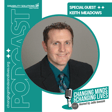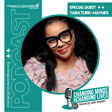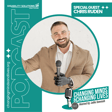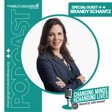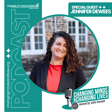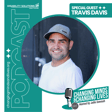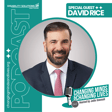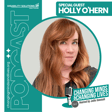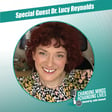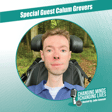
CMCL Takeover By Grant Harris - Seen, But Not Heard: Neurodivergence in Communities of Color
What does it mean to be seen, but not truly heard? When the color of your skin speaks louder than your voice, and your neurodivergence is misread as defiance, disinterest, or something to be corrected?
In this powerful episode, guest host Grant Harris sits down with two thought-provoking guests whose lives and work sit at the intersection of race, disability, and identity.
Ian Gibbs-Hall is the creator of Curiosity Architecture and the founder of Sonder, a social enterprise that rehumanizes how we see ourselves and the systems we live in. His work blends systems thinking, empathy, and spiritual insight to challenge how institutions define value and behavior. Ian explores how metrics, language, and culture often obscure neurodivergent brilliance—and how reimagining these structures starts with the questions we ask.
Natasha Grant Holmberg offers both a personal and generational lens, grounded in her lived experience as a neurodivergent professional with ADHD. As the Director of Employment & Workforce Development at First Place AZ and creator of Be Open + Be Ready℠, she leads inclusive employment initiatives that focus on readiness training and educating employers on neuro-inclusive hiring practices. Natasha’s work fosters environments where difference is embraced, not erased. Her story isn’t just one of survival—it’s about reclaiming her voice and creating space for others to be heard sooner, more clearly, and more fully.
Together, these voices shed light on what it means to be perpetually interpreted, often misunderstood, and rarely embraced in full. But more importantly, they reveal what’s possible when systems make room for difference, not just to exist, but to lead.
Changing Minds & Changing Lives is produced by Disability Solutions, a nonprofit consulting firm and job board that partners with global brands to drive inclusive hiring and disability-inclusive talent strategies.
